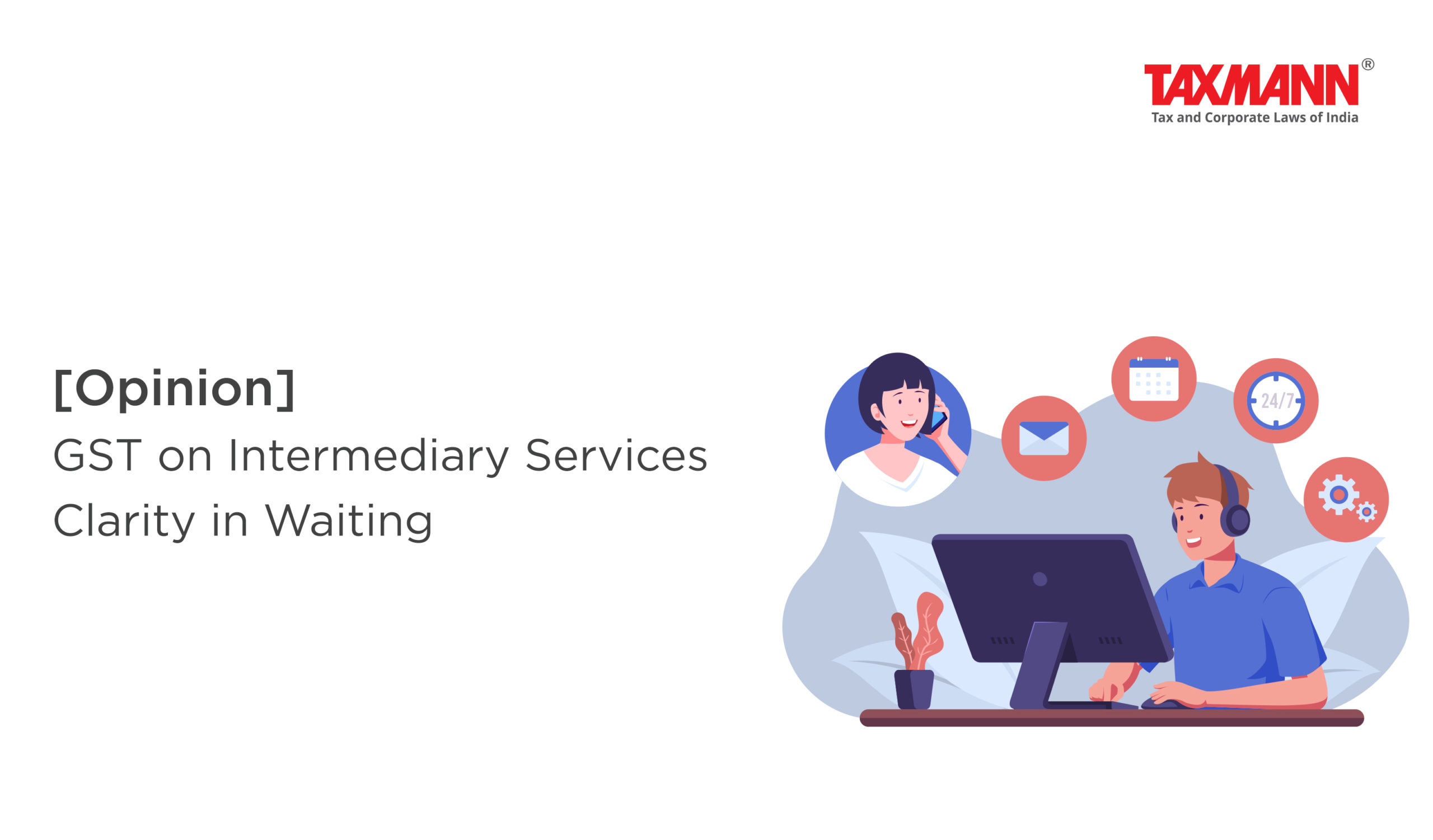[Opinion] GST on Intermediary Services | Clarity in Waiting
- Blog|News|GST & Customs|
- 2 Min Read
- By Taxmann
- |
- Last Updated on 27 May, 2023

Ankur Goel & Mansi Goel – [2023] 150 taxmann.com 417 (Article)
The Bombay High Court has pronounced its long-awaited decision in the case of Dharmendra M. Jani on the issue of levy of GST on intermediary services. The judgment was expected to provide clarity on GST applicability on intermediary services after more than five years of introduction of GST.
Before analyzing the judgement, let us revisit the history of taxation of intermediary services in brief.
History of intermediary services and issues in the taxability
Intermediary is not a new concept. It was present in the statute book since the service tax regime. The concept was carried forward to GST regime as well. Since then, issues have arisen with the taxability of such services.
The bone of contention is section 13(8)(b) of the Integrated Goods and Services Tax Act, 2017 (‘IGST Act’) which provides that in case the location of either recipient or supplier is outside India, the place of supply of intermediary services is the location of the supplier.
The issue can be understood with the help of an example. Let us say, ABC Pvt. Ltd., an Indian entity, is an agent of its client located outside India and assisting in supply of goods from the client located outside India, to other Indian entities. In this case, ABC Pvt. Ltd. provides intermediary services to its clients located outside India. In terms of section 13(8)(b) of the IGST Act, place of supply of such service will be in India (location of ABC Pvt. Ltd.). Consequently, ABC Pvt. Ltd. is required to pay GST on such intermediary services.
The IGST Act also prescribes below five conditions for a service to qualify as export of service:
(1) the supplier of service should be located in India;
(2) the recipient of service should be located outside India;
(3) the place of supply of service should be outside India;
(4) the payment for the service should be received in convertible foreign exchange or in Indian rupees, wherever permitted; and
(5) the supplier and the recipient are not merely establishments of distinct persons.
Thus, for determining whether a service qualifies as export or not, place of supply is a crucial criterion, and it should be outside India. In our example, place of supply of intermediary services provided by ABC Pvt. Ltd. is in India. Hence, such service does not qualify as export of service and benefit of export of services cannot be claimed in respect thereof. This is an industry wide issue and assessees have challenged the constitutional validity of section 13(8)(b) of the IGST Act, before multiple fora.
Provisions of section 13(8)(b) of the IGST Act have been held to be constitutional by the Gujarat High Court whereas division bench of Bombay High Court had given split verdict. In view of the split verdict, the matter was placed before the third member for the final opinion. The third member has recently pronounced its judgment which has brought the issue of taxability of intermediary services to the forefront.
Click Here To Read The Full Article
Disclaimer: The content/information published on the website is only for general information of the user and shall not be construed as legal advice. While the Taxmann has exercised reasonable efforts to ensure the veracity of information/content published, Taxmann shall be under no liability in any manner whatsoever for incorrect information, if any.

Taxmann Publications has a dedicated in-house Research & Editorial Team. This team consists of a team of Chartered Accountants, Company Secretaries, and Lawyers. This team works under the guidance and supervision of editor-in-chief Mr Rakesh Bhargava.
The Research and Editorial Team is responsible for developing reliable and accurate content for the readers. The team follows the six-sigma approach to achieve the benchmark of zero error in its publications and research platforms. The team ensures that the following publication guidelines are thoroughly followed while developing the content:
- The statutory material is obtained only from the authorized and reliable sources
- All the latest developments in the judicial and legislative fields are covered
- Prepare the analytical write-ups on current, controversial, and important issues to help the readers to understand the concept and its implications
- Every content published by Taxmann is complete, accurate and lucid
- All evidence-based statements are supported with proper reference to Section, Circular No., Notification No. or citations
- The golden rules of grammar, style and consistency are thoroughly followed
- Font and size that’s easy to read and remain consistent across all imprint and digital publications are applied



 CA | CS | CMA
CA | CS | CMA
